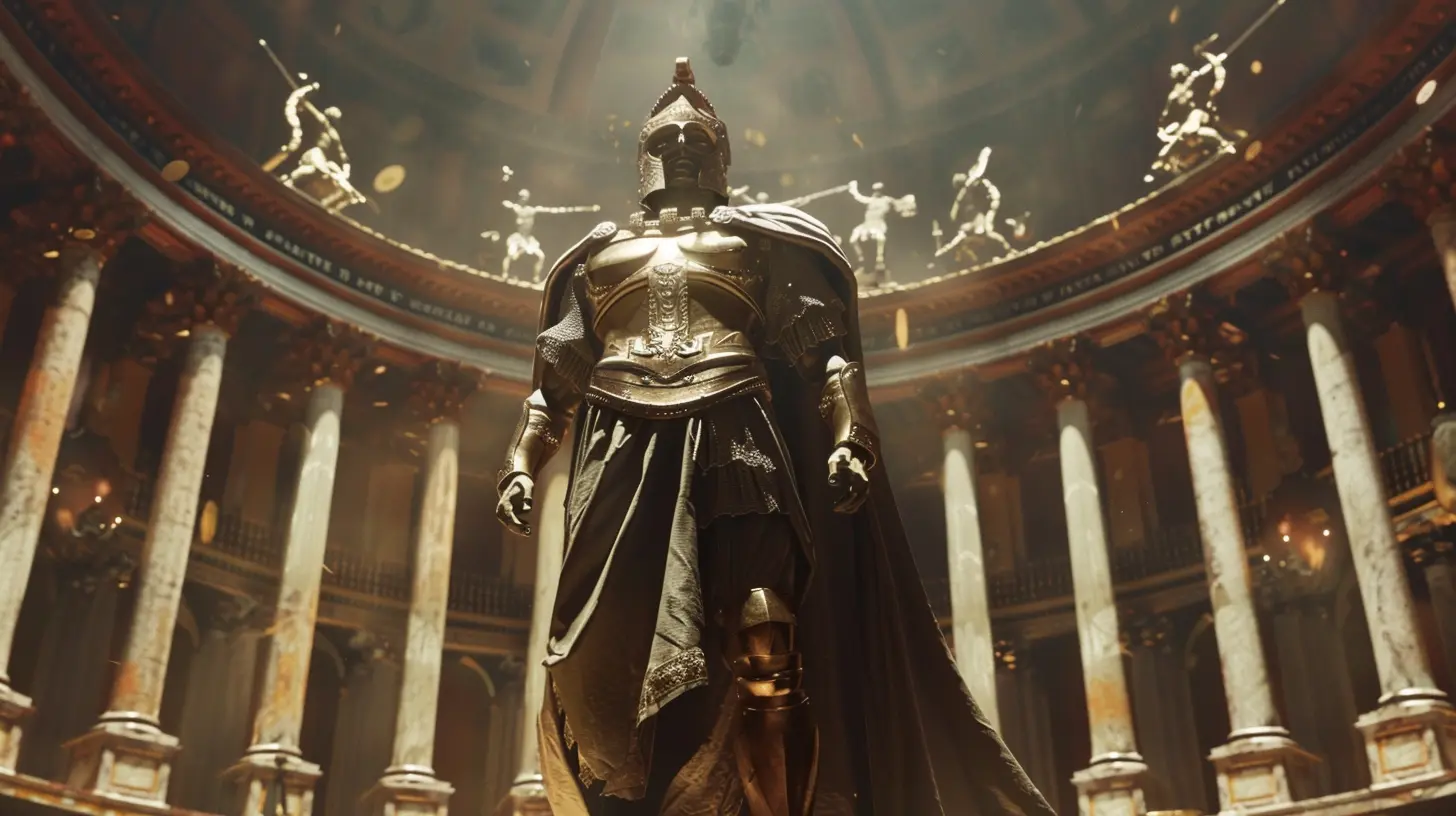Why Some Game Awards Feel More Prestigious Than Others
14 March 2025
Let’s face it—video game awards are a big deal. They’re like the Oscars of gaming, but instead of little golden statuettes, developers walk away with validation, bragging rights, and sometimes a slightly weird-looking trophy. However, not all game awards are created equal. Some give off an aura of prestige, while others feel like participation medals at a middle school science fair. But why is that? What makes some game awards stand taller than others in the eyes of players, developers, and the gaming industry as a whole? Let's dive into it and find out.
The Role of Legacy in Prestige
Ever noticed how some award shows just feel more important because they've been around forever? It’s the same in gaming. Legacy matters—a lot. Take The Game Awards, for instance. While relatively young compared to something like the BAFTA Games Awards, it has already carved out a spot as one of the most prestigious ceremonies in the industry. Why? Simple. Consistency, presentation, and mass appeal.Think of legacy like seasoning in cooking. The longer it’s been stewing, the richer the flavor. Awards like BAFTA or D.I.C.E. have been around for years, and that longevity brings with it a sense of trustworthiness. People respect it because it’s been part of the industry fabric for decades. If an award show can stand the test of time, it naturally starts to feel more prestigious.
On the flip side, newer awards can sometimes feel like upstarts, if not outright cash grabs. They haven't had time to establish themselves, so they can feel hollow even if their intentions are good.
Industry Backing and Credibility
Let’s be real—if an award isn’t supported by the gaming industry itself, people are less likely to take it seriously. Prestige thrives when the big players—developers, publishers, critics—all buy into the process. This is why awards like The Game Awards or the Golden Joystick Awards get so much clout. They’ve got heavy hitters backing them up, ensuring they aren’t just some random popularity contest.Think about it this way: would you trust a Michelin-star restaurant review if it came from a random neighborhood blogger, or would you take it more seriously coming from an established critic? Gaming awards are no different. When genuine industry professionals are involved, the awards feel more legitimate.
Contrast that with lesser-known awards that lack credible judges or participants. If no one in the industry cares about it, why should gamers? It’s harsh, but true. The more buy-in from studios, journalists, and even players, the more the award shines.
The Presentation Matters—A Lot
Let’s talk showmanship! If you’ve ever watched The Game Awards, you know they go big. Live orchestras? Check. World premieres for upcoming games? Double-check. Hollywood-level production values? Absolutely. It’s a spectacle, and that spectacle makes it feel like the gaming event of the year.Presentation matters because it’s part of how we perceive value. Think of it like unboxing a gift. Would you feel the same excitement if a diamond ring was handed to you in a crumpled plastic bag instead of a velvet-lined jewelry box? Probably not, right? In the same way, how an award show is presented impacts how prestigious it feels.
Compare this to smaller, less-polished ceremonies, where the production might seem amateurish or rushed. No matter how meaningful the awards themselves might be, the lack of polish can make it harder for people to take them seriously.
Community Involvement: Popularity vs. Expertise
Here’s an interesting wrinkle—should these awards reflect the voice of the people or the expertise of industry insiders? The answer often determines how prestigious an award is perceived.For instance, shows like The Game Awards blend both community voting and a jury of experts. This balance often works because it gives everyone a say while maintaining credibility. On the other hand, purely fan-voted awards can sometimes feel more like popularity contests than an actual measure of quality. Sure, we all love a good underdog story, but let’s be honest—some games win fan votes not because they’re groundbreaking, but because they have rabid fanbases (looking at you, any major franchise).
When an award leans too heavily on community involvement alone, it can start to feel less prestigious. It’s like voting for prom king or queen. Fun? Yes. Prestigious? Not so much.
The Categories and the Scope of the Awards
Have you ever looked at an awards show and thought, “Wait, what even is that category?” The scope and structure of the awards also play a huge role in how they’re perceived. Prestigious awards tend to focus on categories that matter—Best Game, Best Narrative, Best Art Direction, and so on.On the other hand, some awards stretch the boundaries a little too far. Sure, "Best Farming Sim Featuring Cats" might be a fun niche category, but it’s hard for anyone to take it seriously. When an award show starts adding a slew of hyper-specific categories, it risks diluting its own impact.
The breadth of games considered also matters. Awards shows that focus only on a narrow slice of the industry—say, indie games or mobile games—can feel less prestigious because they don’t represent the industry as a whole. That doesn’t mean they aren’t valuable, but they’ll never carry the same weight as awards that consider the entire gaming landscape.
Marketing Power and Media Coverage
Let’s not kid ourselves—prestige is often tied to how much people are talking about the awards. Marketing and media coverage play massive roles in shaping perception. The Game Awards, for example, dominate social media and news outlets every year. They’re trending on Twitter. There are write-ups on every gaming blog you can think of. Heck, even non-gamers hear about it.This buzz creates a feedback loop. More media coverage = more viewers = more buzz = more prestige. It's like a snowball effect. Smaller awards that can’t generate that kind of excitement, either because of limited marketing budgets or lack of big-name partnerships, often struggle to build the same level of recognition.
The Winners Speak Volumes
Finally, let’s talk about the winners. Whether we like it or not, the games that take home the trophies can either elevate or devalue an award’s prestige. Awards that consistently honor groundbreaking, innovative titles build a reputation for having good taste. Think about it—people still talk about how The Legend of Zelda: Breath of the Wild swept major awards. That kind of legacy boosts the prestige of the awards themselves.On the flip side, if an award consistently feels out of touch or rewards mediocrity, it loses credibility. Gamers are savvier than ever, and they’ll call out bad choices instantly. Prestige dies in the vacuum of trust.
Wrapping It Up: A Two-Way Street
So, why do some game awards feel more prestigious than others? It’s not just one thing—it’s the perfect storm of legacy, credibility, presentation, community involvement, categories, media buzz, and ultimately, the winners. Prestige is a two-way street. It’s shaped by the people behind the awards and the community that interacts with them.But hey, at the end of the day, awards are subjective. What feels prestigious to one gamer might mean nothing to another. For some, it’s all about the big shows with all the glitz and glamour. For others, a small indie-focused award that celebrates creativity and passion means the most. And honestly? It’s kind of awesome that there’s room for both in the gaming world.
all images in this post were generated using AI tools
Category:
Game AwardsAuthor:

Lana Johnson
Discussion
rate this article
5 comments
Zinn McCray
Let's be real: some awards are just glitter on a mediocre game. Prestige comes from passion and innovation, not just a fancy trophy. Shine on, true talent!
April 5, 2025 at 4:07 PM

Lana Johnson
I completely agree! True recognition should reflect genuine creativity and passion, not just the glitz of an award. It's the innovation behind the games that truly matters.
Destiny McCray
Great article! It’s interesting how factors like industry influence, historical significance, and media coverage shape the perceived prestige of various game awards. Insightful analysis!
March 25, 2025 at 5:53 PM

Lana Johnson
Thank you! I'm glad you found the analysis insightful. It's fascinating how those factors truly shape perceptions of prestige in game awards.
Michelle Porter
Great insights! Prestige truly shapes our gaming experiences.
March 19, 2025 at 5:00 AM

Lana Johnson
Thank you! I appreciate your thoughts on the impact of prestige in gaming.
Jett Mitchell
Prestige in game awards often stems from industry influence, historical significance, and community engagement; these factors shape perceptions, making certain accolades feel more valued than others.
March 18, 2025 at 4:28 AM

Lana Johnson
Absolutely! Prestige in game awards is shaped by a blend of industry influence, historical context, and community involvement, all of which contribute to how we value different accolades.
Runevale Lane
Ah yes, because nothing screams "prestige" like a golden statue shaped like a pixelated chicken. Clearly, the secret to gaming glory lies in the shiny hardware and an overzealous PR team. Who needs substance, right?
March 17, 2025 at 4:56 PM

Lana Johnson
I appreciate your perspective! Award design can certainly influence perception, but the value often lies in the recognition and community impact behind them.




